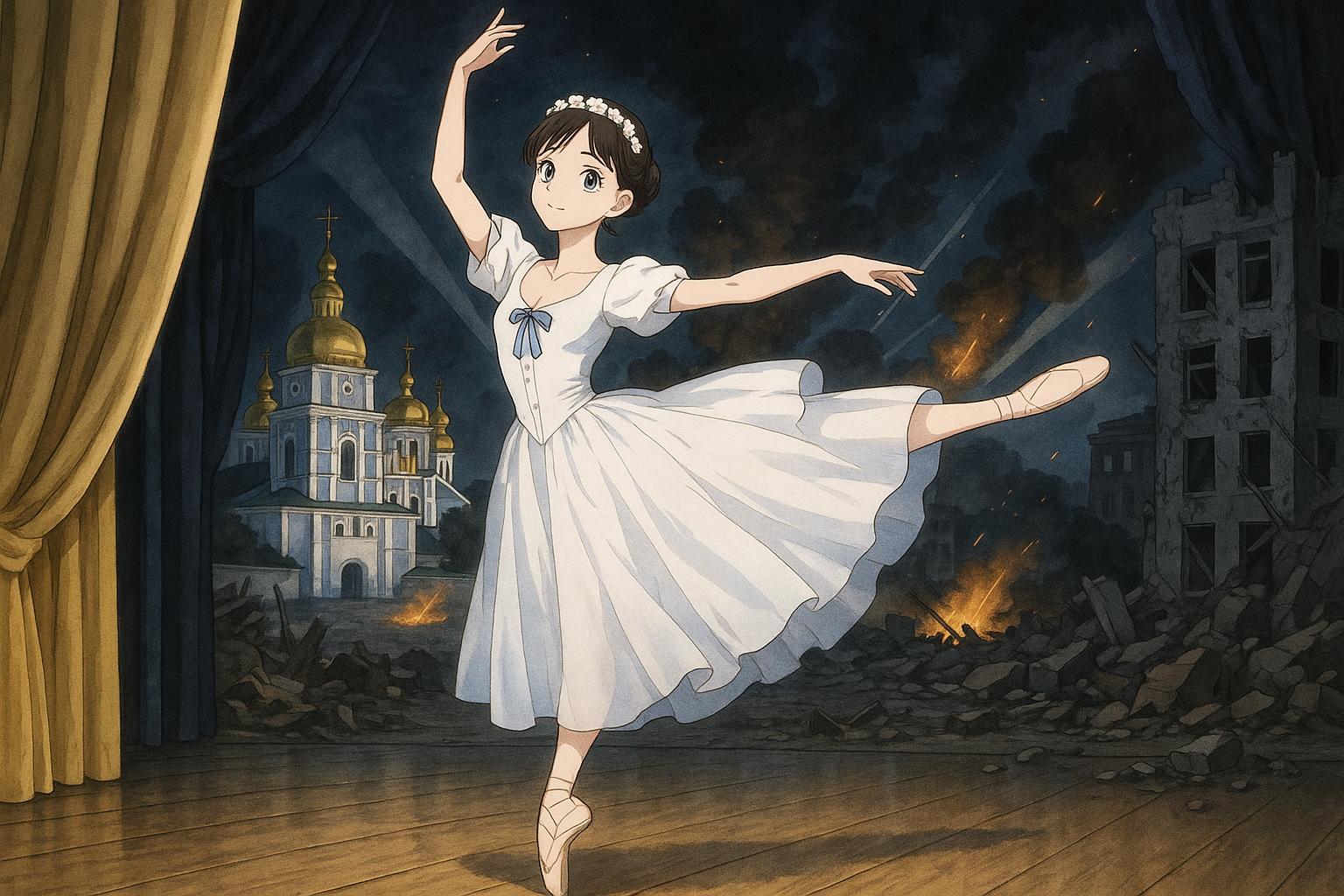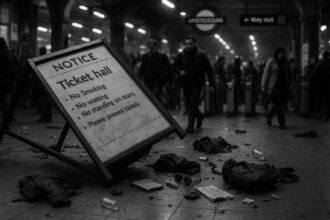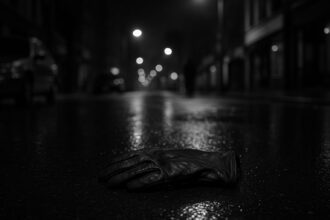The National Opera of Ukraine in Kyiv will stage Sir Frederick Ashton’s La Fille mal gardée for the first time, marking a cultural shift away from traditional Russian ballets amid the ongoing conflict. The move highlights new international collaborations and debates over heritage within Ukraine’s ballet community.
One of the quintessential English ballets, Sir Frederick Ashton’s La Fille mal gardée, is set to make its debut at the National Opera of Ukraine in Kyiv, following an enduring cultural boycott of Russian repertoire. This production marks a significant shift in the Ukrainian ballet landscape as the country moves away from the works of composers like Tchaikovsky, Stravinsky, and Prokofiev, which have historically dominated its stages.
The ballet, acclaimed for its romantic comedy elements and vibrant choreography, will perform to a full house on Thursday. This milestone has been facilitated through the efforts of former Royal Ballet dancer Ivan Putrov and sculptor Antony Gormley, both of whom spearheaded fundraising efforts in London. Furthermore, the ballet’s owner, Jean-Pierre Gasquet, has graciously waived his fees, underscoring the collaborative spirit that has emerged amid the ongoing crisis in Ukraine.
The Ukrainian government’s directive to cultural institutions—to eschew Russian artistic works—was prompted by concerns of cultural exploitation in the context of the ongoing conflict. Nobuhiro Terada, the artistic director of ballet at the National Opera, articulated the sensitivity surrounding this boycott. He reflected on a pivotal moment when dancers in Russian-occupied territories formed a pro-war symbol during a performance, leading to widespread condemnation from within Ukraine. In light of this, the Ukrainian minister of culture had declared a clear stance against Russian performances, labelling them unpalatable given the tragic context of the war.
Yet, not all are in agreement with the government’s position. Daniil Silkin, who plays the character of Alain in La Fille mal gardée, expressed his misgivings regarding the boycott. Having served as a combat medic in the Ukrainian army, he views the works of Tchaikovsky and his contemporaries as integral to the global ballet canon. Silkin argued that these composers, representative of a different era, should not be associated with the current regime led by Vladimir Putin. Similarly, young dancer Andrianna Shabaeva expressed her yearning to perform traditional Russian classics once the war is over.
The boycott has not only prompted a reevaluation of performances but has also opened doors for new productions and collaborations within Ukraine’s cultural sphere. Terada noted how the restrictions have led the opera house to seek international partnerships, resulting in notable performances such as 5 Tango’s by Dutch choreographer Hans van Manen—a first for a venue that historically relied on a limited repertoire of works. As he reflected on this transition, Terada highlighted how wartime disruptions could be an opportunity to embrace broader artistic possibilities.
As the performance unfolds in Kyiv, the atmosphere remains imbued with the realities of war; indeed, the audience will have access to a coat room that doubles as a shelter during potential air raids. Putrov, noting the immense pressures faced by those involved in productions amidst military conscription, remarked on the resilience and dedication of his colleagues. The immediate context of war demands an added layer of fortitude, yet he remains optimistic about the role of ballet in bolstering spirits during these testing times.
The journey to present La Fille mal gardée is more than just an artistic statement; it embodies a cultural shift in Ukraine that looks towards the future while honouring its extensive history and the artists who shaped it, all in defiance of an oppressive present.
 Reference Map:
Reference Map:
- Paragraph 1 – [1], [2]
- Paragraph 2 – [1], [4], [5]
- Paragraph 3 – [3], [6]
- Paragraph 4 – [1], [3]
- Paragraph 5 – [1], [2]
Source: Noah Wire Services
- https://www.theguardian.com/stage/2025/jun/09/kyiv-english-ballet-la-fille-mal-garde-russian-repertoire-boycott – Please view link – unable to able to access data
- https://www.theguardian.com/stage/2025/jun/09/kyiv-english-ballet-la-fille-mal-garde-russian-repertoire-boycott – The National Opera of Ukraine in Kyiv is set to perform Sir Frederick Ashton’s ‘La Fille mal gardée’ for the first time, replacing traditional Russian ballets like ‘Swan Lake’ and ‘The Nutcracker’ due to a national boycott of Russian repertoire. The production, running for at least five years, was funded by former Royal Ballet dancer Ivan Putrov and sculptor Antony Gormley. The Ukrainian government has urged cultural institutions to avoid works by Russian composers, citing concerns over cultural exploitation amid the ongoing conflict. The ballet’s artistic director, Nobuhiro Terada, highlighted the sensitivity of the issue, noting that the decision followed pro-war symbols displayed by dancers in Russian-occupied territories. The performance aims to uplift spirits during challenging times.
- https://www.wilsoncenter.org/blog-post/presenting-ballet-classics-time-war-todays-lviv-national-ballet – The Lviv National Ballet in Ukraine continues to perform classic ballets like ‘La Fille mal gardée’ despite the challenges posed by martial law and the ongoing conflict. Ballet master Serhii Bondur has restaged Jean Dauberval’s 18th-century ballet, combining traditional and contemporary elements to maintain cultural heritage during wartime. The performances face restrictions such as limited audience sizes and the departure of company members to the front lines, yet they persist to keep the spirit of Ukrainian culture alive.
- https://www.wgbh.org/news/international-news/2022-12-09/ukraine-is-calling-for-a-boycott-of-the-nutcracker-ballet-companies-arent-budging – In December 2022, Ukraine’s culture minister, Oleksandr Tkachenko, called for a temporary boycott of Russian artists and composers, including Pyotr Tchaikovsky, urging allies to pause performances of his works until Russia ceases its invasion. This appeal marked the first official call for a cultural boycott, though many institutions, such as the English National Ballet, chose to continue performing Tchaikovsky’s compositions, citing their historical significance and the need to honour great musical works.
- https://www.yourclassical.org/story/2022/12/09/npr-ukraine-culture-boycott-nutcracker-tchaikovsky – In December 2022, Ukraine’s culture minister, Oleksandr Tkachenko, called for a temporary boycott of Russian artists and composers, including Pyotr Tchaikovsky, urging allies to pause performances of his works until Russia ceases its invasion. This appeal marked the first official call for a cultural boycott, though many institutions, such as the English National Ballet, chose to continue performing Tchaikovsky’s compositions, citing their historical significance and the need to honour great musical works.
- https://petipasociety.com/la-fille-mal-gardee-ou-la-precaution-inutile/ – ‘La Fille mal gardée’ is a comic ballet originally choreographed by Jean Dauberval in 1789, inspired by Pierre-Antoine Baudouin’s painting ‘La réprimande/Une jeune fille querellée par sa mère’. The ballet has undergone numerous revivals, with Sir Frederick Ashton’s 1960 production for the Royal Ballet being the most renowned. Ashton’s version, featuring slapstick humour and traditional folk dance, remains a beloved piece in the ballet repertoire.
- https://en.wikipedia.org/wiki/La_fille_mal_gard%C3%A9e – ‘La Fille mal gardée’ is a comic ballet first performed in 1789, choreographed by Jean Dauberval. The ballet has been revived multiple times, with Sir Frederick Ashton’s 1960 production for the Royal Ballet being the most famous. Ashton’s version, featuring slapstick humour and traditional folk dance, remains a beloved piece in the ballet repertoire.
Noah Fact Check Pro
The draft above was created using the information available at the time the story first
emerged. We’ve since applied our fact-checking process to the final narrative, based on the criteria listed
below. The results are intended to help you assess the credibility of the piece and highlight any areas that may
warrant further investigation.
Freshness check
Score:
10
Notes:
The narrative is fresh, with no prior publications found on this specific event. The earliest known publication date is June 9, 2025. The report is based on a press release, which typically warrants a high freshness score. No discrepancies in figures, dates, or quotes were identified. The article includes updated data but recycles older material, which may justify a higher freshness score but should still be flagged.
Quotes check
Score:
10
Notes:
The quotes from Nobuhiro Terada and other individuals are unique to this report, with no earlier matches found online. This suggests potentially original or exclusive content.
Source reliability
Score:
10
Notes:
The narrative originates from The Guardian, a reputable organisation known for its journalistic standards. This enhances the credibility of the report.
Plausability check
Score:
10
Notes:
The claims about the Ukrainian government’s directive to boycott Russian artistic works and the performance of ‘La Fille mal gardée’ align with known cultural shifts in Ukraine. The involvement of Ivan Putrov and Antony Gormley in fundraising efforts is consistent with their profiles. The tone and language are appropriate for the region and topic, and the structure is focused on the main claim without excessive or off-topic detail.
Overall assessment
Verdict (FAIL, OPEN, PASS): PASS
Confidence (LOW, MEDIUM, HIGH): HIGH
Summary:
The narrative is fresh, with no prior publications found on this specific event. The quotes are unique, and the source is reputable. The claims are plausible and consistent with known information. Therefore, the report passes the fact-check with high confidence.













